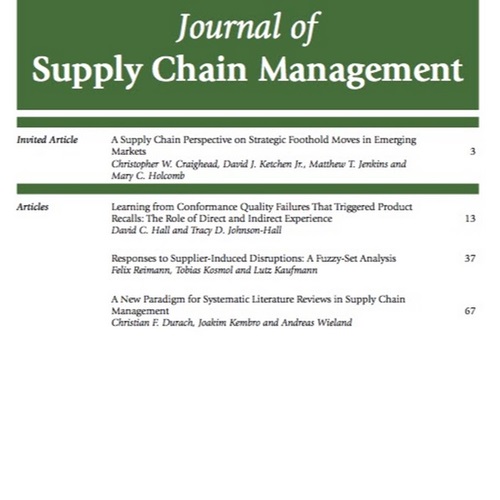Exploring the Antecedents of Customer Whistleblowing in a Supplier–Customer–Customer Triad: A Cognitive Approach
Abstract
In supplier–customer–customer triads, customer whistleblowing—a focal customer reporting another customer's wrongdoing to a supplier—can help the supplier detect downstream customers' wrongdoing. Although strategically important, understanding the cognitive processes that drive the whistleblowing decisions of a customer firm's managers is lacking. Drawing on the social information processing theory, this study proposes that the seriousness of a peer customer's wrongdoing triggers the perceptions of economic unfairness and moral responsibility of the focal customer firm's managers, which are related to their intention to blow the whistle. It further examines how market uncertainty and the relationship strength between the focal customer and supplier moderate the effects of wrongdoing seriousness on the two perceptions. The findings from two scenario-based experiments support the hypotheses. This study contributes to the literature by focusing on a supplier–customer–customer triad and exploring customer whistleblowing as a supplementary mechanism for governing customer wrongdoing. The findings will guide suppliers on how to encourage customer whistleblowing as a proactive strategy to prevent wrongdoing.

 求助内容:
求助内容: 应助结果提醒方式:
应助结果提醒方式:


